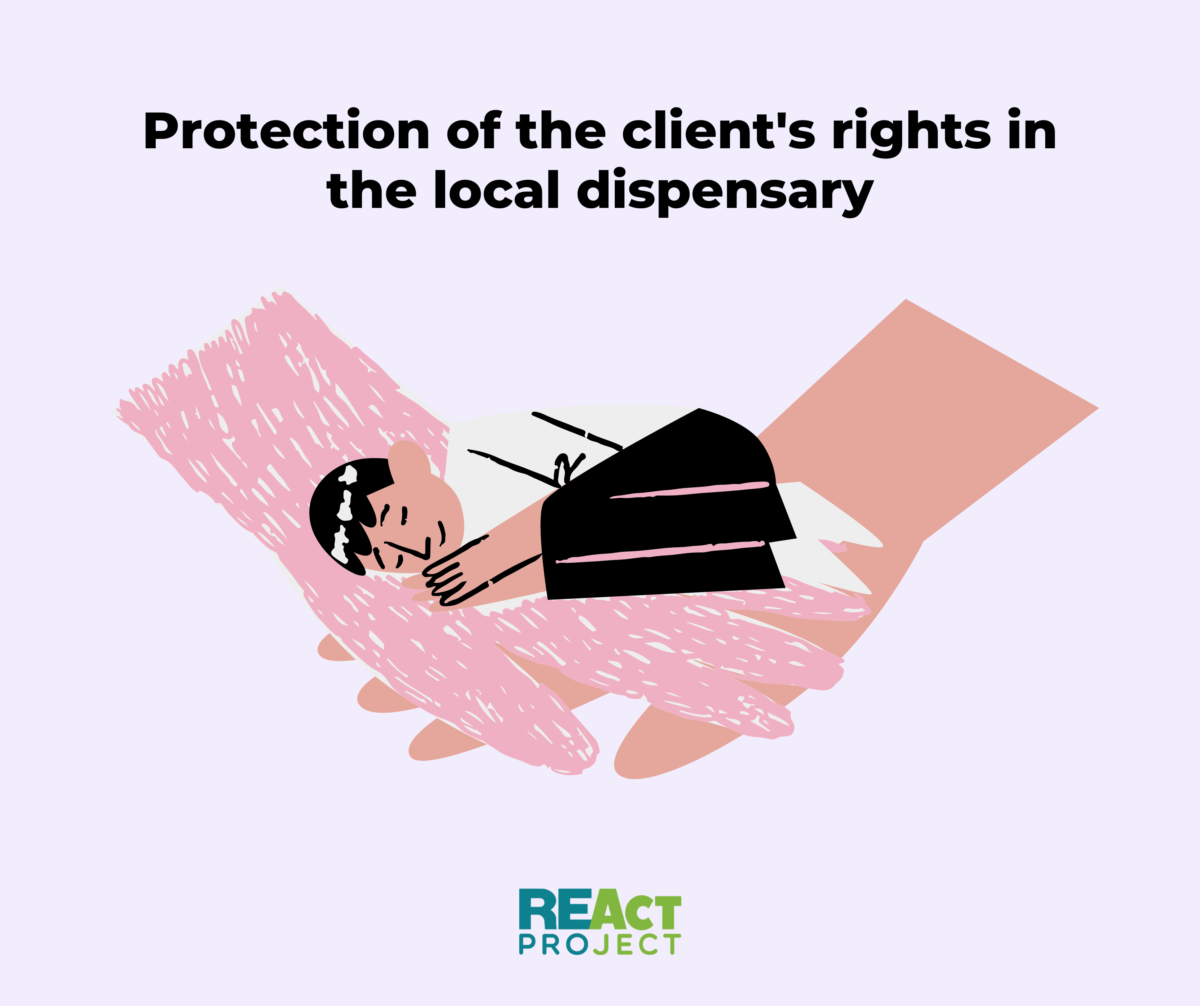Viktoriia was being treated for lymphadenopathy; she was running a high fever and the lymph nodes in her neck were extremely swollen. She turned to her family doctor for help at a local outpatient clinic. During the consultation, the doctor advised hospitalization, but Viktoriia refused due to financial reasons.
After that, Viktoriia informed the doctor about her HIV-positive status. As soon as the words were out of her mouth, the man’s attitude toward the patient immediately changed, and he adopted a dry and curt tone of voice. When he stressed the need for her to see an ENT specialist as well, and Viktoriia asked for a referral and information on where she could get high-quality medical advice, the doctor replied, “How do you even expect to get a consultation with a diagnosis like this?” and mockingly added that the patient should be grateful that she was even talked to in “regular health care centers” and advised her to contact the AIDS center where “the likes of her” are treated.
Viktoriia was shocked by this attitude, but she had to get the referral, so she asked the doctor to provide a referral for the ENT specialist, rather than waste his time sharing unsolicited comments. The doctor replied that he was unable to help her out with this at that point because the computer system was not working. That being so, the client asked that the doctor then give her a paper-based referral note and enter the details into the database at a later point, because she knew from experience that this was standard practice. The doctor carried out this request, although with much reluctance, essentially hurling at her the slip of paper with the referral number, and told her to never come back.
Viktoriia was so rushed to leave his office as soon as possible that she did not even look at what he had written there. Once the woman left the office, she saw that the doctor had written the ICD code B20 with the note “AIDS patient” in the corner of the referral slip.
The client immediately returned to the doctor’s office and asked that he rewrite the referral. At that moment, the doctor was talking to a nurse, and the woman realized that they were discussing her diagnosis. As soon as they saw Viktoriia, they immediately stopped talking and the doctor disdainfully inquired if she had forgotten anything. The woman asked that the ICD code be removed from the referral, but was told no, “Doctors are supposed to know everything about their patient, especially this kind of data, this is a safety precaution.”
That same evening, Viktoriia got in touch with the REActor. The client was provided with legal advice and psychological guidance. The woman was also advised on how to proceed if the doctor and nurse disclosed her HIV status. Later, the paralegal and the REActor filed a complaint with the head of the primary health care center about the discriminatory attitudes experienced by their health care staff, violation of patient’s rights, and disclosure of confidential information. After that, they took up the matter with the head of the center and discussed the situation at hand.
The head of the health care center reacted promptly, and the family doctor was officially reprimanded and warned that disclosure of confidential medical information incurs criminal liability.
Currently, Viktoriia is being served by another family doctor, and her treatment is successful.


